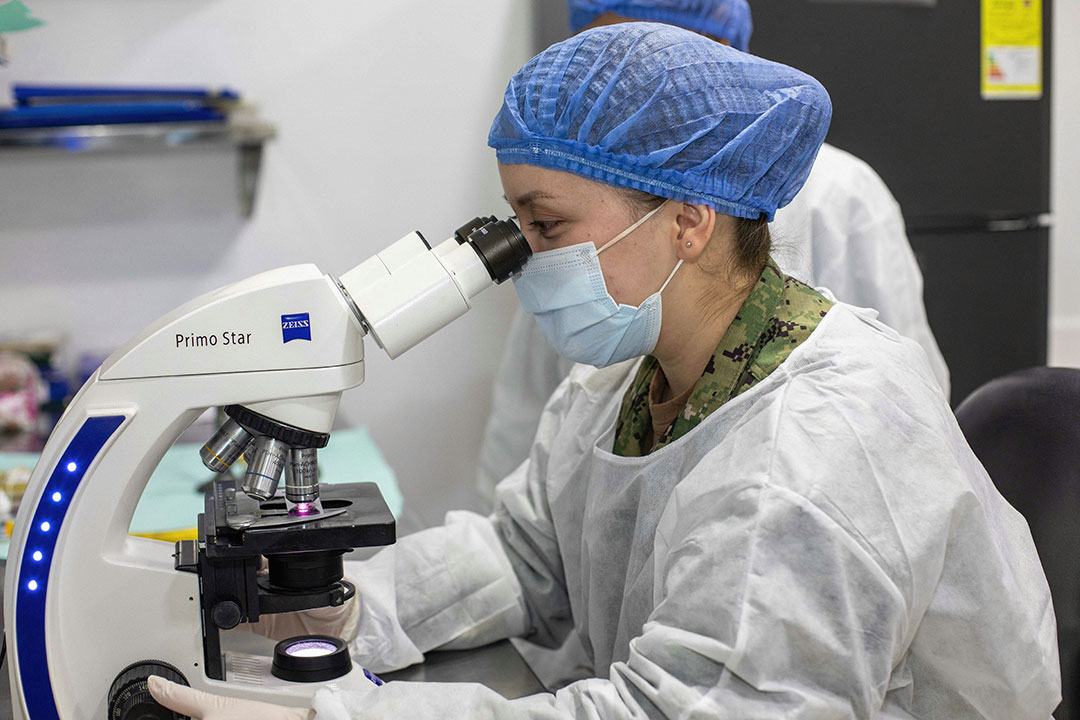In Zimbabwe an AI “midwife” is making pregnancy safer for underserved women
A group of Zimbabwean women have created Nyamukuta – “midwife” in Shona – an app that is already helping at-risk mothers and mothers-to-be navigate pre- and post-birth risk.
- 21 August 2025
- 7 min read
- by Calvin Manika
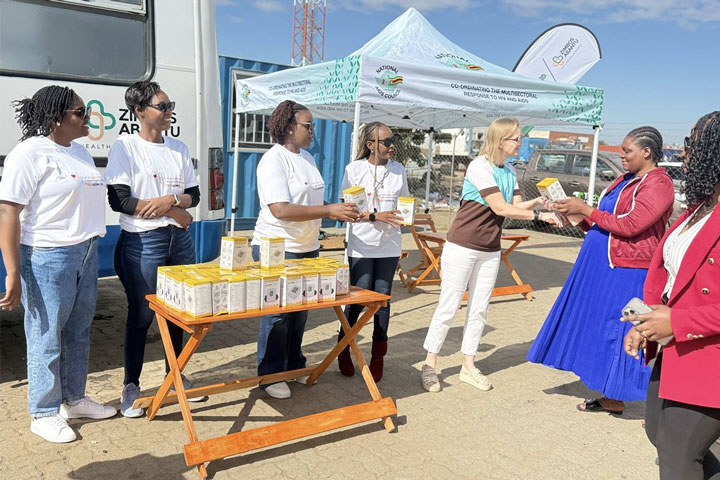
Lorcadia Mateu, 38, from Epworth in Harare experienced frequent headaches, hazy vision and pain in the upper abdomen during pregnancy with her first child. It was only when she finally went to the clinic for a check-up – an inconvenient trip she’d hoped to avoid – that she discovered the cause. She had pre-eclampsia, a dangerous complication of pregnancy that needs careful management.
By the time she was pregnant with her second child, Mateu had help much closer to home: a mobile app called Nyamukuta, which is specifically designed to support women in communities such as Epworth who struggle to access maternal health services.
The app – developed by a not-for-profit initiative with support from a US TechWomen Impact Grant – was launched together with the distribution of blood pressure machines, and been described as a ‘new dawn in maternal healthcare’.
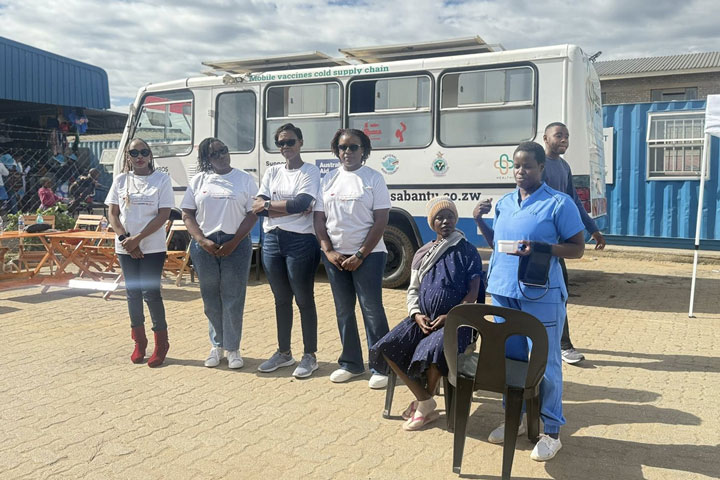
“I could ask any question on the app and get instant responses, using the skills we learnt,” said Mateu. “Also, I constantly tested myself for blood pressure with the machine, without travelling to the clinic. “Just imagine, if one develops symptoms in the midst of the night and it’s dangerous to travel -- but with the app and the machine, you only visit the clinic when the situation is intense, or on a regular appointment.”
“We thought we could do something”
Despite low literacy in her community, Mateu says pregnancy is gradually becoming a less frightening and less dangerous prospect. Awareness campaigns in the community mean people now have an appetite for health knowledge, she said.
“Information is power; people are continuously seeking it. If all pregnant women in Zimbabwe could have access to the Nyamukuta app chatbot, many lives would be saved,” said Mateu.
One of the Nyamukuta program developers, Tofara Chokera, said the application development idea came after witnessing many women facing challenges in pre- and post-pregnancy healthcare.
“With other women in tech, we thought we could do something for maternal healthcare. And realising that we are in the information age, where almost everyone has a smartphone. We thought of bringing the information on their fingertips and also accompany our Nyamukuta app with some [blood pressure] machines,” Chokera told VaccinesWork.
Internet access is still a challenge in some parts of Zimbabwe, even in some urban settings. However, WhatsApp tends to be well-supported even in slow internet zones.
“WhatsApp is easily accessible and does not require expensive phones. We then built a chatbot embedded on WhatsApp, where [users] communicate with the bot and get answers on all issues of maternal healthcare,” explained Chokera, who is also the founder of the digital marketing and innovation consulting trust, Tofara Online.
A homegrown solution
Pre-eclampsia is common among pregnant women in Zimbabwe. A 2015 study focusing on the prevalence of pregnancy induced hypertension (PIH) – a broader set of conditions that includes pre-eclampsia – in Harare, found it affected 19.4% of women. Among other worrying outcomes, women with PIH were 4.3 times more likely to have a stillbirth.
The report concluded that “insufficient knowledge” of PIH management and “inadequate resources” constituted a risk that needed to be addressed.
In 2023, Chokera and her colleagues travelled to the United States at the invitation of the TechWomen Program. “During our residence and networking with other fellows we found ourselves looking back to think of challenges faced by our country. Having seen and witnessed issues affecting our health care system, high maternal mortality rates related to pre-eclampsia and eclampsia topped the list. And we thought we could proffer a solution to prevent deaths during pregnancy and childbirth,” said Chokera. “This is the genesis of our initiative, Nyamukuta program.”
Have you read?
Nyamukuta, a Shona word meaning ‘midwife’, reflects the app’s mission to provide vital intervention during the pre- and post-natal periods.
Speaking to VaccinesWork, Chokera said, “Our solution included the creation of the Nyamukuta WhatsApp Chatbot. The chatbot gives life-saving prenatal care information. We also donated blood pressure machines to help expectant mothers monitor their health. The initiative aims to scale nationwide, with the goal of reaching thousands more.”
Ripple effects
Beyond maternal care, the Nyamukuta program is also bringing in support for immunisation, child nutrition and well-being. The initiative also caters to digital record-keeping and combining community-based care with smart technology.
On her Facebook account, Chokera hailed the official handover of the project in Epworth: “We started with 50 pregnant women, each receiving a [blood pressure] machine, and then onboard[ed] to the Nyamukuta chatbot after initial testing and regulatory approval. This is just the beginning. Together, we are saving lives, one mother at a time.”
Another Epworth mother, Tanatswa Mautsi, 27, said that since she started using the application she has been helping others.
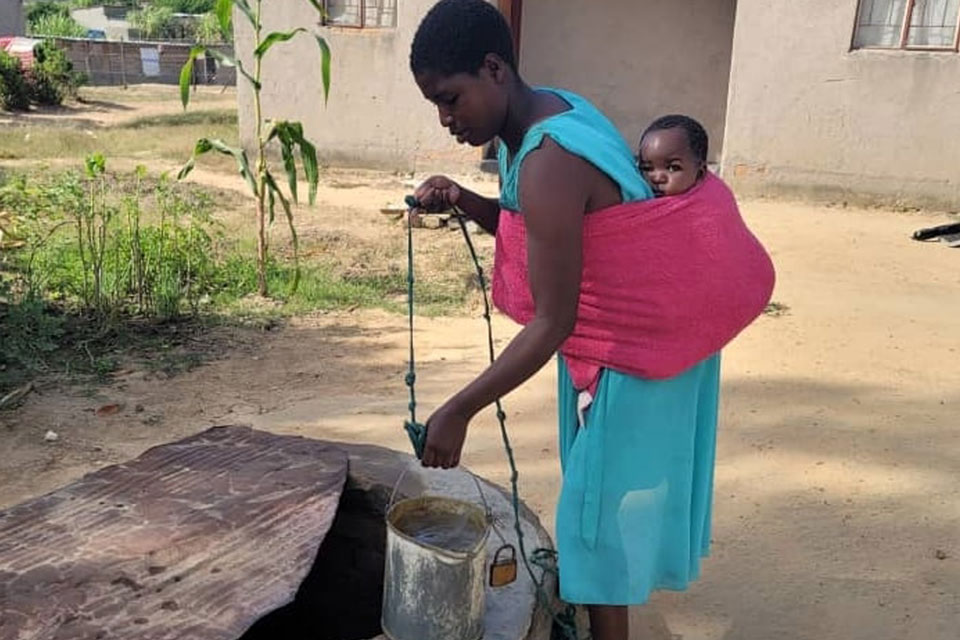
“This is a new thing in our community, it started with the 50 of us. We have the [blood pressure] machines, but for the Nyamukuta app, it’s easy to share with others. My neighbours and others now have access to information. The few in our community without WhatsApp, we help them by enquiring using our phones as we meet in our social circles,” said Mautsi.
The Nyamukuta WhatsApp chatbot is accessed by registering through a dedicated number. Once done with registration, and with an active WhatsApp data bundle, women can ask any question on pre- and post-natal healthcare. Responses ping in promptly.
The blood pressure machines donated to the Epworth community are portable and each use a battery, making it work even where there is no electricity. In Epworth a lot of houses are not yet connected to electricity. “But they are not losing out and we are preventing fatalities for children and the mother,” said Sarah Huruswa, an Epworth community health worker.
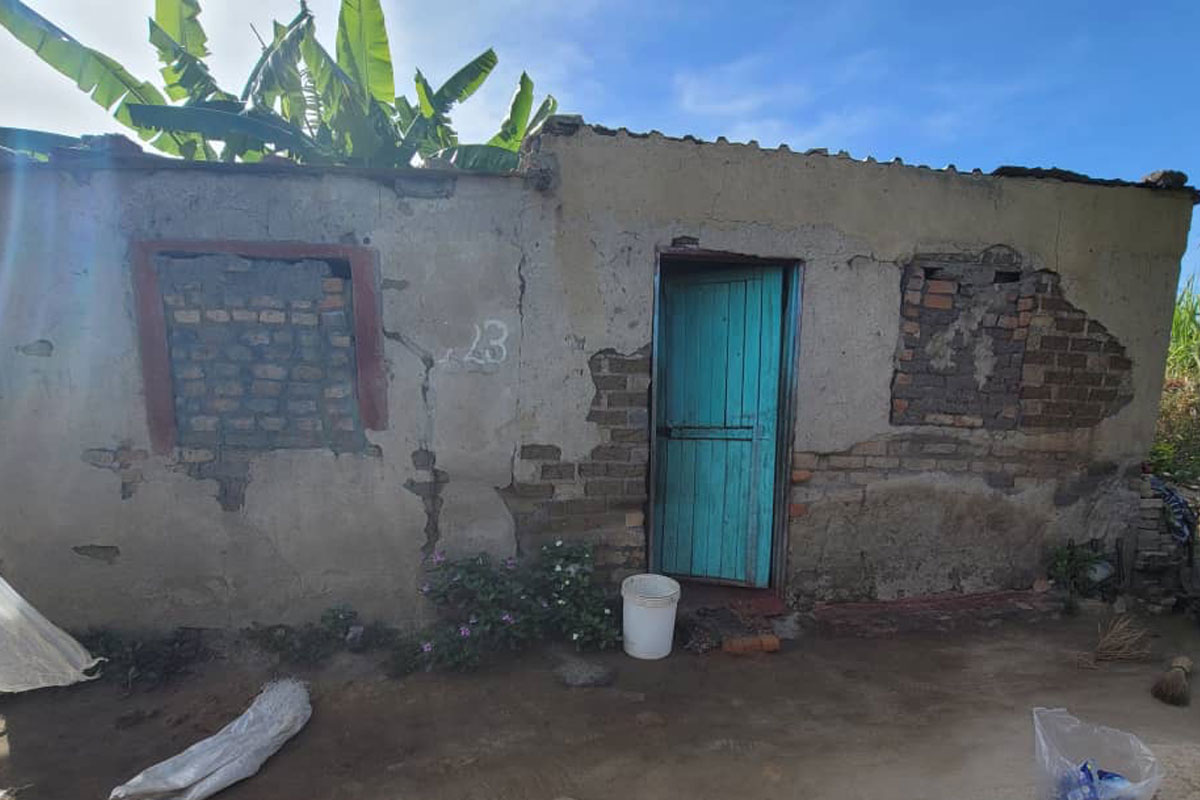
Tech, AI and the future of maternal healthcare in Zimbabwe
The adoption of artificial intelligence (AI) in Zimbabwe has been high in the commerce and banking sector, with other sectors, including health, trailing behind.
Speaking at the launch of Zimbabwe’s Digital Health initiative in November 2024, Health and Child Care minister Dr Douglas Mombeshora said the country’s healthcare system was at a technological turning point. “It is not simply about integrating technology into our health systems, but about using these tools to build a healthier, stronger Zimbabwe. Our digital health initiatives align seamlessly with the national development strategy, the national health strategy and our commitment to universal health coverage.”
Applauding the existing platforms, he said Zimbabwe was already witnessing the profound impact of these efforts for patients, citing that digital platforms are improving access to care, empowering them with access to their health information and providing continuity of care, especially for those in underserved areas.
“For health workers, these tools reduce administrative burdens, improve workflows and enable real-time access to critical information, enhancing the quality of care delivered for the health system. Digital health solutions enable better resource allocation, data-driven decision-making and resilience to future challenges,” said Mombeshora.
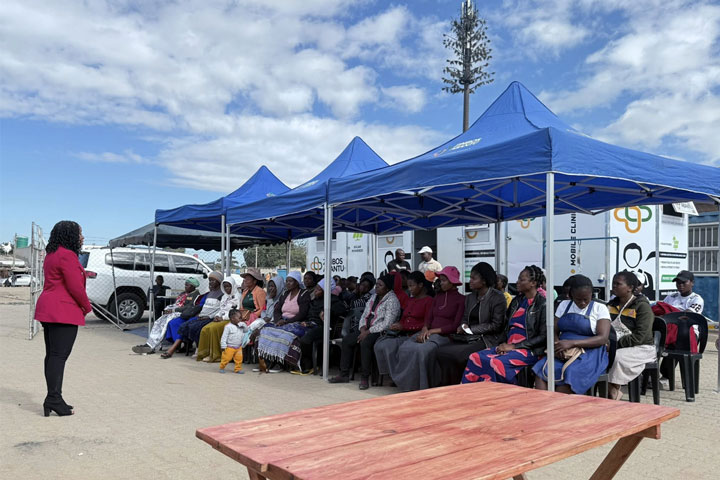
Organisations such as ZimbosAbantu, a Zimbabwean healthcare organisation that supported the Nyamukuta program’s development, have been making inroads with different concepts and projects in mobile health technologies designed for low-cost usage. One notable project is Telemedicine, implemented in partnership with Econet Wireless Services, Zimbabwe’s largest network provider.
“It’s impressive to see technology bridging the gap in our health sector. It’s time to bring health professionals and tech experts on the table to continue creating solutions to the urgent issues we are faced with as a country. Technology is cost-effective and our communities are ready to support as part of health solutions,” said Leah Chuma, a community psychologist and advocate of tele-health in Zimbabwe’s underserved communities.
Epworth community health stakeholders say when they saw ZimbosAbantu coming with the TechWomen group to give pregnant women blood pressure machines and the Nyamukuta app, they knew that it would be important.
“With decades of working in this community assisting in maternal health, the chatbot is a game-changer, as many questions women used to consult are attended to promptly, effectively and with precision on action to take,” Huruswa told VaccinesWork.
More from Calvin Manika
Recommended for you

